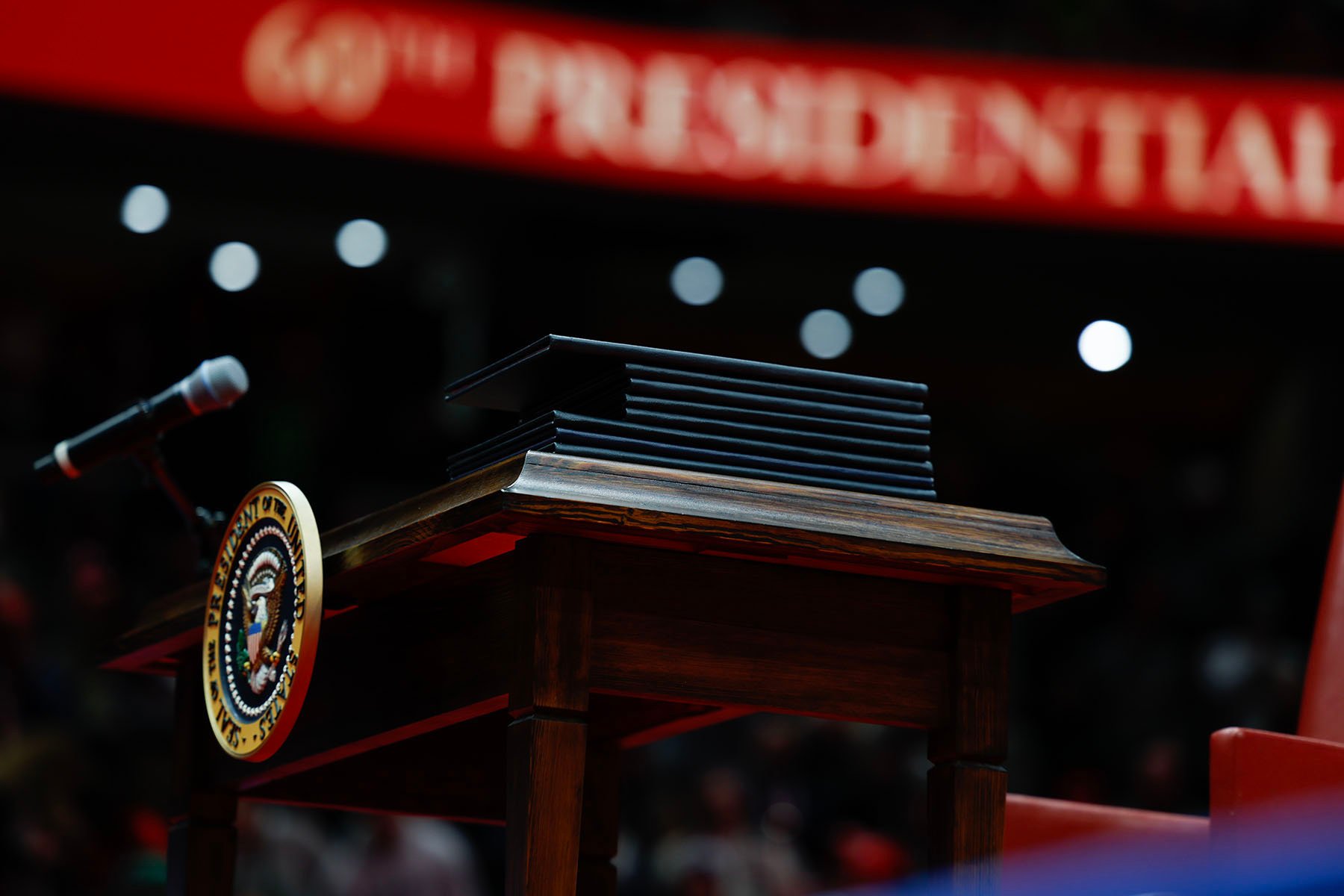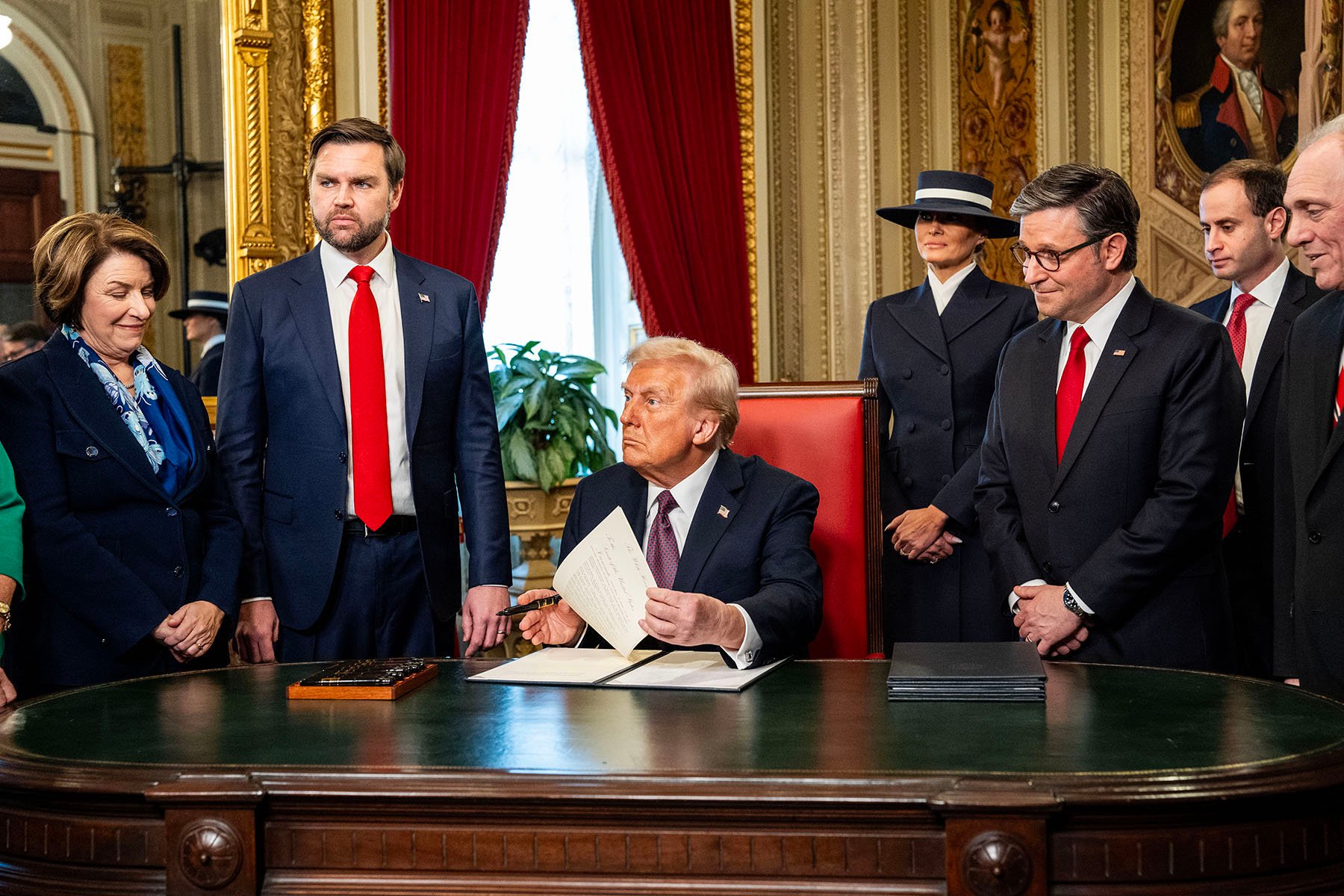Among his first acts as president, President Donald Trump issued an executive order to “revoke federal DEI requirements,” a move in line with his promise to “terminate federal staffers implementing DEI policies.”
“This week I will also end the government policy of trying to socially engineer race and gender into every aspect of public and private life,” Trump said during his inaugural address Monday. “We will forge a society that is colorblind and merit-based.”
One of his first moves on this front came Monday night when he rescinded an executive order by former President Joe Biden that had provided agencies with “information, resources and a methodology to assess” diversity, equity, inclusion and accessibility in their workforce. Biden’s executive order aimed to establish a “government-wide initiative to promote diversity” in the federal workforce.
Trump has railed against diversity, equity and inclusion (DEI) efforts for years. In his first term, he signed an executive order “combating race and sex stereotyping.” During his 2024 presidential campaign, he promised to end funding at a federal level in his second term.
The federal government has spent more than $1 billion in DEI grants since 2021, according to a report released in December 2024. Parents Defending Education, a nonpartisan nonprofit that released the report, found that nearly half of the spending went towards hiring, another $340 million went to programming and nearly $170 million went to DEI-based mental health and social emotional learning.
Trump said he intended to establish a new Department of Government Efficiency (DOGE), which is not actually a government department, to slash excess regulations and cut waste within federal agencies. The purported head, Elon Musk, repeatedly publicly disparaged DEI. The panel is looking to slash more than $120 billion in annual spending on DEI, according to The Washington Post. Programs focused on benefiting Black farmers and businesses, as well as a Biden-era executive order that reserved 15 percent of federal contracts for businesses owned by minorities, are likely to be ended.
The Federal Bureau of Investigations closed its DEI office in December. The private sector is also seeing a shift: big businesses like Walmart, McDonalds and Meta have also rolled back their DEI policies since the 2024 election.
Vice President JD Vance also sponsored the Dismantle DEI Act in the Senate last June. The act — which was referred to the Committee on Homeland Security and Governmental Affairs — would have eliminated all federal DEI programs and funding for federal agencies, contractors which receive federal funding, organizations which receive federal grants and educational accreditation agencies.”
Trump also pointed to the military as a place where he would be directing his efforts.

“I will sign an order to stop our warriors from being subjected to radical political theories and social experiments while on duty,” he said in his inaugural address. “It’s going to end immediately. Our armed forces will be free to focus on their sole mission: defeating America’s enemies.”
The U.S. military has long been a testing ground for DEI initiatives in the country. In 1948, President Harry Truman signed an executive order to desegregate the Armed Forces. At the time, the Army had become the nation’s largest employer of non-White persons. It was another six years before schools were desegregated with the Brown v. Board of Education ruling and 16 years before all public spaces were desegregated with the passage of the Civil Rights Act.
On Inauguration Day, the White House website listed the new Trump-Vance administration priorities — including efforts to “drain the swamp” by putting a freeze on “bureaucrat hiring except in essential areas to end the onslaught of useless and overpaid DEI activists buried into the federal workforce.”
The American public’s opinion of DEI in the workplace has declined since 2023, but a slim majority of Americans still think that DEI practices are “a good thing” that help rather than hurt Black, Hispanic and Asian men and women, according to the Pew Research Center.
DEI initiatives are not new — though many were launched and expanded in 2020 — and date back to the mid-1960s following the introduction of equal employment laws and affirmative action. And the Civil Rights Act of 1964 made it illegal — for the first time — to discriminate based on race, gender, national origin, religion or age in hiring and promotion.






